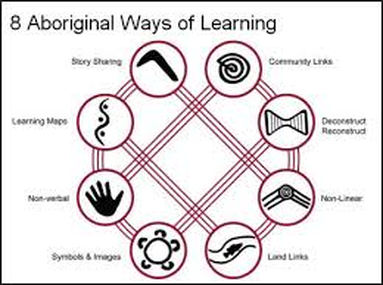
Start your research in the following key databases.
Warning: The records in these databases may contain names and/or images of deceased Aboriginal and Torres Strait Islander people
Try the following databases if you are searching for more specific education literature.
 8 ways : Aboriginal pedagogy from Western NSW
by
8 ways : Aboriginal pedagogy from Western NSW
by
This online tutorial will take approximately 20-25 minutes to complete, and is designed to help you with finding resources for your assessments. At the end of the module you will know how to:
Click the arrows at the bottom right to view the tutorial in full-screen mode.
You may be required to find peer-reviewed journal articles. Here are some tips for finding out if an article is published in a peer-reviewed journal:
There are 4 ways to check for peer-reviewed status:
Also remember to check that your article is scholarly and not just an opinion or commentary piece that happens to be in a peer-reviewed publication. Some good indicators:
Research Ready - Scholarly vs non-scholarly sources
This module that explains the difference between Scholarly and non-Scholarly resources.
Research Ready - Evaluating resources
A short module showing how to evaluate resources using the CRAAP test